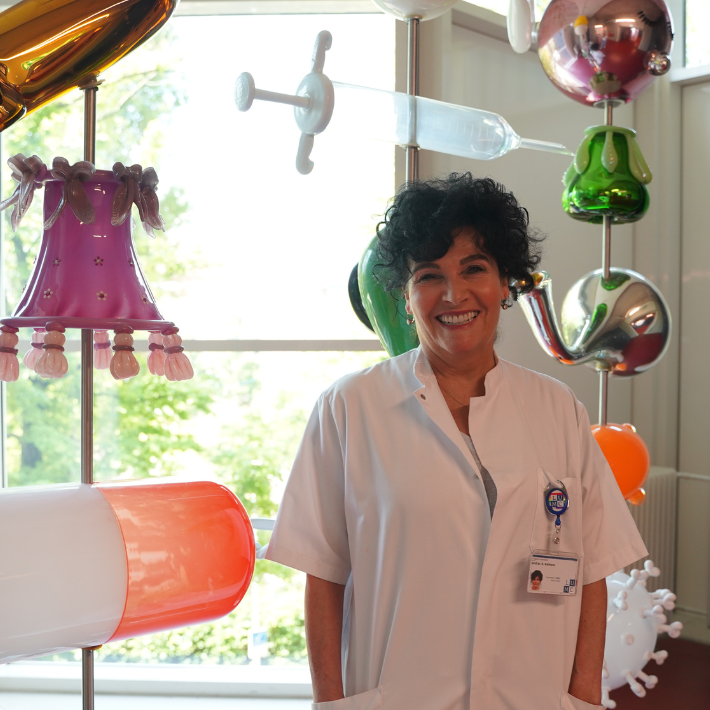'They are your eyes, though'
&width=710&height=710)
What is your speech about?
Kalmann: “In my speech I will take the listeners through the history, current state of affairs and future of ophthalmology, among other things. In it, special attention is paid to pathologies of the eye orbit, my own specialty. For example, Graves' disease, an inflammatory disease often associated with a slow-working thyroid gland. There are still many questions we want to answer with research, such as why not everyone with thyroid disease also gets the eye disease and vice versa.”
“In addition, I do scientific research on orbital inflammation, another inflammatory disease whose cause is not yet known. We are the center in the Netherlands that sees the most patients with this disease. In the future, I want to be able to identify risk factors for this why one patient responds well to the drug prednisone and another does not. If you know why it does or doesn't work, you can avoid unnecessary treatment with prednisone in some patients and use a different drug.”
“In addition to my own research, LUMC also does a lot of research on ocular melanoma (eye cancer). At LUMC, we treat about 90 percent of the people in the Netherlands who have it. I want to facilitate the people in the clinic and the researchers to further strengthen the research on eye melanoma.”
You also want to look more at the different techniques of imaging. What exactly does this entail?
“I want to look at how you can use MRI images to distinguish even better between different conditions of the eye socket. Is something malignant or benign? There are already techniques for that, but I want to investigate how we can further refine them to make diagnoses earlier and start treatment earlier.”
The title of your inauguration is ‘They your eyes, though’. Is that something you often hear in the consulting room?
“Very often. It's also very recognizable to my colleagues. People often ask if surgery on the eyes is not very dangerous. A nursing specialist at the UMC Utrecht, where I worked before, researched that explanation and attention before an operation removes the fear of the operation and improves the result. A lack of information increased fear of surgery. This was studied in people who had to undergo eye removal surgery. This shows that it is important to take an interest in the person behind patient and look beyond the eyes. This is nice for the patient himself, but often also makes your own profession more enjoyable.”
Imagining you we are many years down the road. Where should ophthalmology at LUMC be?
“That there is a treatment for patients with metastatic eye melanoma. Unfortunately, this treatment is not there yet. I also want to be a role model for residents in the department and provide a good learning environment. I want to ensure that research, clinic and teaching are considered equally important. Ophthalmology should be given a more important place in the study again, because ... they are your eyes.”
Kalmann's speech will be live on February 10 at the website of Leiden University.
Ophthalmology is one of LUMC's largest departments and focuses on the diagnosis and treatment of disorders of the eye, the tear ducts, the eyelids and the eye socket. The department specializes in ocular oncology, pediatric ophthalmology, retinal disorders, ocular melanoma (eye cancer), and disorders of the eye socket and skull base.
